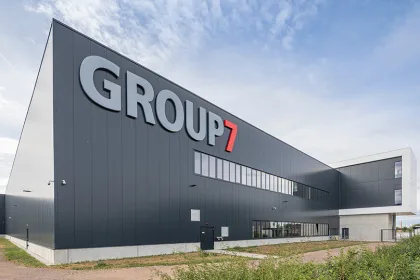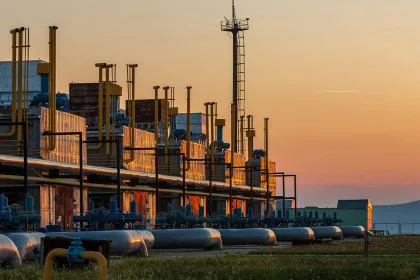EME Outlook talk to Mathias Lelievre, CEO of ENGIE Impact, which formed in July 2019.
The signing of the Paris Agreement in 2015 marked an important milestone in intensifying efforts to create a sustainable future.
Charting a new course in the global climate effort, the accord aims to open up access to finance and technology to drive national sustainability agendas, the ultimate ambition being to keep global temperature rises to well under two degrees Celsius within this century.
Although brokered by the United Nations and politicians, the Paris Agreement is also being fervently backed by some of the largest multinational businesses.
More than 500 companies have made public commitments to the sustainability targets outlined at Paris, with an increasing amount targeting a zero-carbon objective. More than 90 of the world’s largest cities have joined C40, a network of megacities committed to climate change, with New York recently signing the most ambitious carbon reduction goal the world has ever seen.
However, of the 500 committed enterprises, just 15 percent are on track to achieving these targets, while businesses report to have identified over $1 trillion in risk related to climate change.
Enter ENGIE Impact and CEO Mathias Lelievre.
Formed in July 2019 as a merger of ENGIE Insight, Ecova UK, Red Engineering and the Advisory and Advanced Analytics division of Tractebel under a common umbrella, the organisation offers consulting and services for sustainability strategy development, execution and tracking for corporations, cities and governments around the world.
“The fundamental reason why ENGIE Impact was established is the changing dynamics of how sustainability is approached,” Lelievre explains.
“It is no longer simply a political issue. More and more this is becoming a business issue, and companies are realising the economic benefits of investing in sustainable technology like battery storage, for example. ENGIE Impact is about creating an environment where it is easy to talk about sustainability and, most importantly, drive action.
“Where do you begin? How do you justify investment in this technology? This is what ENGIE Impact is designed to help with. We are uniquely placed with worldwide expertise to solve these problems.”
Indeed, the New York-headquartered organisation operates out of 18 offices worldwide and serves 1,000 clients, including a quarter of the Fortune 500 companies, across more than a million sites.
From hospitality giants with hundreds of hotels spread globally to Australian city authorities and multinational telcos, ENGIE Impact finds itself at the frontline of the corporate and public sustainability agenda.
“Sustainability, for us, is about how companies and public bodies can continue to operate and be successful and at the same time minimise their impact on the planet,” adds Lelievre.
“Energy is one part of this equation, but other scarce resources such as water must also be considered, along with how much waste one generates. This is the way we look at sustainability, and ENGIE is leading the transition to zero-carbon corporations.”
The backing of a powerful parent organisation should not be understated either. ENGIE, formally known as GDF Suez, is a French multinational electric utility company which turned over more than €60 billion in 2018, employing 160,000 people around the world.
Before heading up ENGIE Impact, Lelievre served as President and CEO of ENGIE Insight having joined in 2015 as the group’s Director of Green Mobility.
“I decided to join ENGIE around five years ago following several years working with the French government, dealing with industries such as nuclear power,” he recalls. “What I find interesting in the energy sector is the impact you can make in relation to sustainability, especially when your employer is a company as large as ours.
“We are at a crossroads and, if we choose, we can have a real positive impact on our planet – we can make sustainability happen now. The other element of this which fascinates me is how connected we are, and how what happens in one part of world can impact events in another. Sustainability must therefore be approached as a collective effort, and this is why I am passionate about it.”
Lelievre has already cited the changing dynamic of how sustainability is approached, and he is the first to admit the conundrum is a complicated one for many global businesses with operations scattered throughout different regions.
His overarching objective as CEO of ENGIE Impact is to lead the organisation to a position where it is recognised as the go-to for multinationals seeking support on their sustainability agendas, be it defining roadmaps or consulting on ways to achieve specific targets.
For Lelievre, the next step in the global picture involves scalable action.
He concludes: “For a long time, sustainability has been talked about in large scales but has not been achievable in practice because the maturity is not there.
“Actions have mostly been driven by regulations, but now we are shifting more and more to the world of business driving these actions – technology has matured, and so the proposition is not as much about the cost, as the business case is sound.
“I see this shift continuing, and regulation if used properly will accelerate technological change. This is not to say that things are not already happening – just look at the Paris Agreement – but what we now need to do is scale this up.”

































